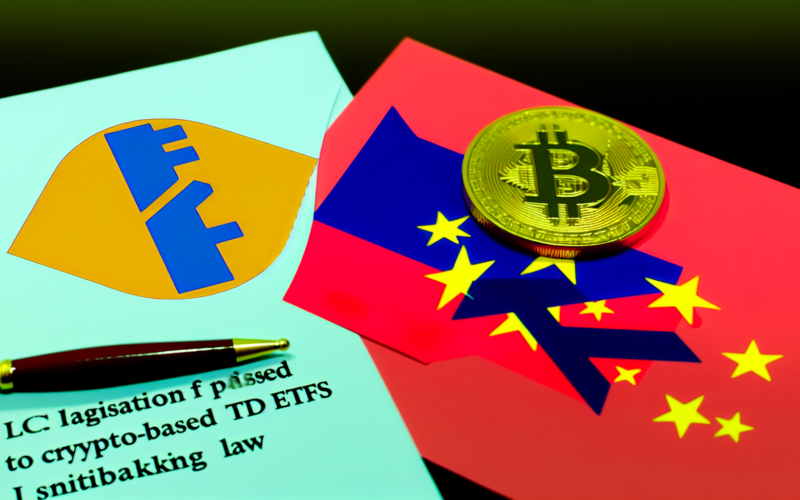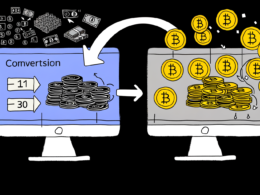South Korea’s ruling party to push crypto reforms, including crypto ETF approval and removal of key banking regulations. #Crypto #SouthKorea #ETFs
- Introduction: South Korea’s Crypto Revolution: A New Dawn for Digital Assets
- Historical Context: From Strict Regulations to Progressive Policies
- Main Insights on Crypto Reforms: Opportunities and Challenges
- The Impact of Approving Spot Crypto ETFs
- Dismantling the “One Exchange, One Bank” Rule
- Institutionalizing Corporate and Investor Participation
- Challenges and Opportunities in Implementing Crypto Reforms
- Regulatory and Compliance Challenges
- Cybersecurity and Consumer Protection
- Global Competition and Innovation
- Future Outlook: South Korea’s Role in the Global Crypto Landscape
- Final Reflections: Lessons and Insights from South Korea’s Crypto Reforms
Introduction: South Korea’s Crypto Revolution: A New Dawn for Digital Assets
In a significant move that could reshape the landscape of cryptocurrency regulation, South Korea’s ruling political faction, the People Power Party (PPP), has unveiled ambitious plans to reform the nation’s approach to digital assets. As the June election approaches, the PPP has pledged to approve spot cryptocurrency exchange-traded funds (ETFs), dismantle restrictive banking regulations, and establish a comprehensive legal framework for digital assets. This initiative not only aims to align South Korea with global crypto trends but also seeks to position the nation as a leader in blockchain innovation. This article delves into the implications of these proposals, the historical context that led to them, and the potential impact on the global cryptocurrency ecosystem.
Historical Context: From Strict Regulations to Progressive Policies
South Korea has long been a pivotal player in the global cryptocurrency market. However, its regulatory stance has oscillated between stringent restrictions and cautious openness. Historically, the nation’s approach was marked by a series of regulatory measures aimed at curbing speculative trading and ensuring investor protection. The “one exchange, one bank” rule, which limited crypto exchanges to a single banking partner, exemplified the restrictive nature of these policies. This regulation was often criticized for stifling competition and innovation within the industry.
The political landscape in South Korea has undergone significant changes, culminating in the impeachment of President Yoon Suk Yeol for imposing martial law under controversial circumstances. This political upheaval has set the stage for a fiercely contested snap election, where the PPP’s crypto reform agenda has emerged as a central theme. By pledging to abolish restrictive banking rules and promote crypto ETFs, the party aims to foster a more dynamic and competitive digital asset market. This shift towards progressive policies reflects a broader global trend towards crypto deregulation, influenced by similar moves in the United States and other major economies.
Main Insights on Crypto Reforms: Opportunities and Challenges
The Impact of Approving Spot Crypto ETFs
The approval of spot crypto ETFs in South Korea could mark a watershed moment for the country’s financial markets. ETFs are investment funds traded on stock exchanges, much like stocks. A spot crypto ETF would allow investors to gain exposure to cryptocurrencies without holding the underlying assets. This move could democratize access to cryptocurrency investments, attract institutional investors, and boost market liquidity.
However, the implementation of crypto ETFs is not without challenges. Regulatory bodies must ensure robust frameworks to prevent market manipulation and protect investors. Lessons from the U.S. Securities and Exchange Commission’s (SEC) approval process for Bitcoin ETFs can serve as valuable precedents for South Korea. By learning from global best practices, South Korea can establish itself as a hub for innovative financial products.
Dismantling the “One Exchange, One Bank” Rule
The abolition of the “one exchange, one bank” rule is another cornerstone of the PPP’s reform agenda. This regulation has been a source of contention, as it limited consumer choice and entrenched monopolistic practices. By allowing crypto exchanges to partner with multiple banks, South Korea can enhance competition, improve service quality, and expand access to digital assets.
However, this liberalization must be accompanied by stringent oversight to prevent money laundering and ensure compliance with anti-terrorism financing laws. A balanced approach that fosters innovation while safeguarding financial stability is essential for sustainable growth in the crypto sector.
Institutionalizing Corporate and Investor Participation
The PPP’s proposals also emphasize the institutionalization of corporate and investor participation in the crypto market. By facilitating broader engagement from non-profits, corporations, and investment firms, South Korea can tap into a vast pool of capital and expertise. This influx of institutional investment could drive innovation, enhance market efficiency, and foster a more mature digital asset ecosystem.
Nevertheless, the integration of corporate players into the crypto space presents unique challenges. Companies must navigate complex regulatory landscapes, assess cybersecurity risks, and develop robust governance frameworks. By providing clear guidelines and support, South Korea can encourage responsible corporate participation and position itself as a leader in crypto innovation.
Challenges and Opportunities in Implementing Crypto Reforms
Regulatory and Compliance Challenges
Implementing crypto reforms presents a myriad of regulatory and compliance challenges. As South Korea seeks to align its policies with global standards, it must navigate complex legal frameworks, address potential conflicts with existing regulations, and ensure consistency across jurisdictions. The establishment of a Virtual Asset Special Committee under the presidential office could provide the necessary oversight and coordination to address these challenges effectively.
Cybersecurity and Consumer Protection
As the crypto market expands, cybersecurity and consumer protection become paramount concerns. The rise of digital assets has been accompanied by an increase in cyber threats, fraud, and market manipulation. South Korea must implement robust security measures, enhance transparency, and educate consumers to build trust and confidence in the crypto ecosystem.
Global Competition and Innovation
South Korea’s crypto reforms are part of a broader global trend towards deregulation and innovation. As countries compete to attract crypto businesses and investors, South Korea must differentiate itself through innovative policies, cutting-edge technology, and a supportive regulatory environment. By fostering a vibrant crypto ecosystem, the nation can position itself as a global leader in digital finance.
Future Outlook: South Korea’s Role in the Global Crypto Landscape
Looking ahead, South Korea’s crypto reforms hold the potential to reshape the nation’s financial landscape and influence global trends. By embracing progressive policies, fostering innovation, and ensuring robust oversight, South Korea can become a model for other countries seeking to harness the benefits of digital assets.
The future of South Korea’s crypto industry will be shaped by its ability to balance innovation with regulation, attract institutional investment, and foster a culture of transparency and trust. As the nation charts its course in the digital finance arena, its success will depend on the collaborative efforts of policymakers, industry leaders, and consumers to create a sustainable and inclusive crypto ecosystem.
Final Reflections: Lessons and Insights from South Korea’s Crypto Reforms
South Korea’s ambitious crypto reform agenda offers valuable lessons and insights for countries navigating the complexities of digital asset regulation. By prioritizing innovation, competition, and consumer protection, South Korea is poised to lead the way in shaping the future of the crypto industry.
As nations grapple with the challenges and opportunities presented by digital assets, South Korea’s experience underscores the importance of adaptive policies, collaborative governance, and forward-thinking leadership. By learning from South Korea’s journey, countries can develop tailored strategies to harness the transformative potential of cryptocurrencies and blockchain technology.
In conclusion, South Korea’s bold steps towards crypto reform signal a new era for the nation’s digital asset market. By embracing change and fostering innovation, South Korea is well-positioned to become a global leader in the rapidly evolving world of digital finance.











